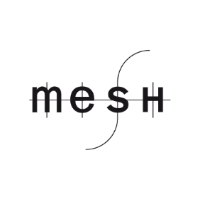Nsah Mala (University of Cologne) and Prof Dr Franz Krause (University of Cologne)
June 4, 2024 | 12.00 – 13.00 | GSSC, 3.03 (Classen-Kappelmann-Str. 24, 3rd floor, 50931 Cologne)
How can humanities scholars study wetlands and the various forms of life in and around them? What insights can they help generate that may be lost to standard hydrological or ecological studies? And what methods can they use to learn about these special places? In this cross-pollinator seminar, cultural-literary scholar and poet Nsah Mala (born Kenneth Nsah) and social anthropologist Franz Krause will discuss the approaches they have found useful in studying wetlands. They will particularly concentrate on how their respective methods have enabled them to research the temporalities that characterise wetland life. Nsah Mala will discuss how oral narratives and indigenous practices highlight multiple temporalities in tropical wetlands, and suggest ways in which these temporalities challenge and/or could inform conservation policy. Franz Krause will focus on moving through the landscape with research participants who know the wetland well, and foreground joint bodily experience and emplaced stories as key strategies. The researchers will then gauge how they can learn from each other’s approach for their own work.
Nsah Mala (born Kenneth Nsah) is a poet-writer, foresight practitioner and futurist, cultural-literary scholar. He is the BRIDGES Coalition Cologne Hub Coordinator. He is currently working on three projects related to the Congo Basin Wetlands: (1) a Congo Basin bilingual eco-poetry anthology, (2) a Congo Basin Futures project supported by the School of International Futures (SOIF) as a Next Generation Foresight Practitioner Fellow, and (3) a British Academy-funded project on Wetland Times (involving researchers in the UK and Germany).
Franz Krause is professor of environmental anthropology and co-director of MESH. He has conducted research in wet places around the world, including a Philippine communal irrigation system, a river in Finnish Lapland, floodplains in Southwest England, an Estonian national park and an Arctic river delta. Franz has edited the open-access collection “Delta Methods: Reflections on Researching Hydrosocial Lifeworlds”; and he is co-editor of a forthcoming volume titled “Amphibious Anthropologies: Living in Wet Environments”.
